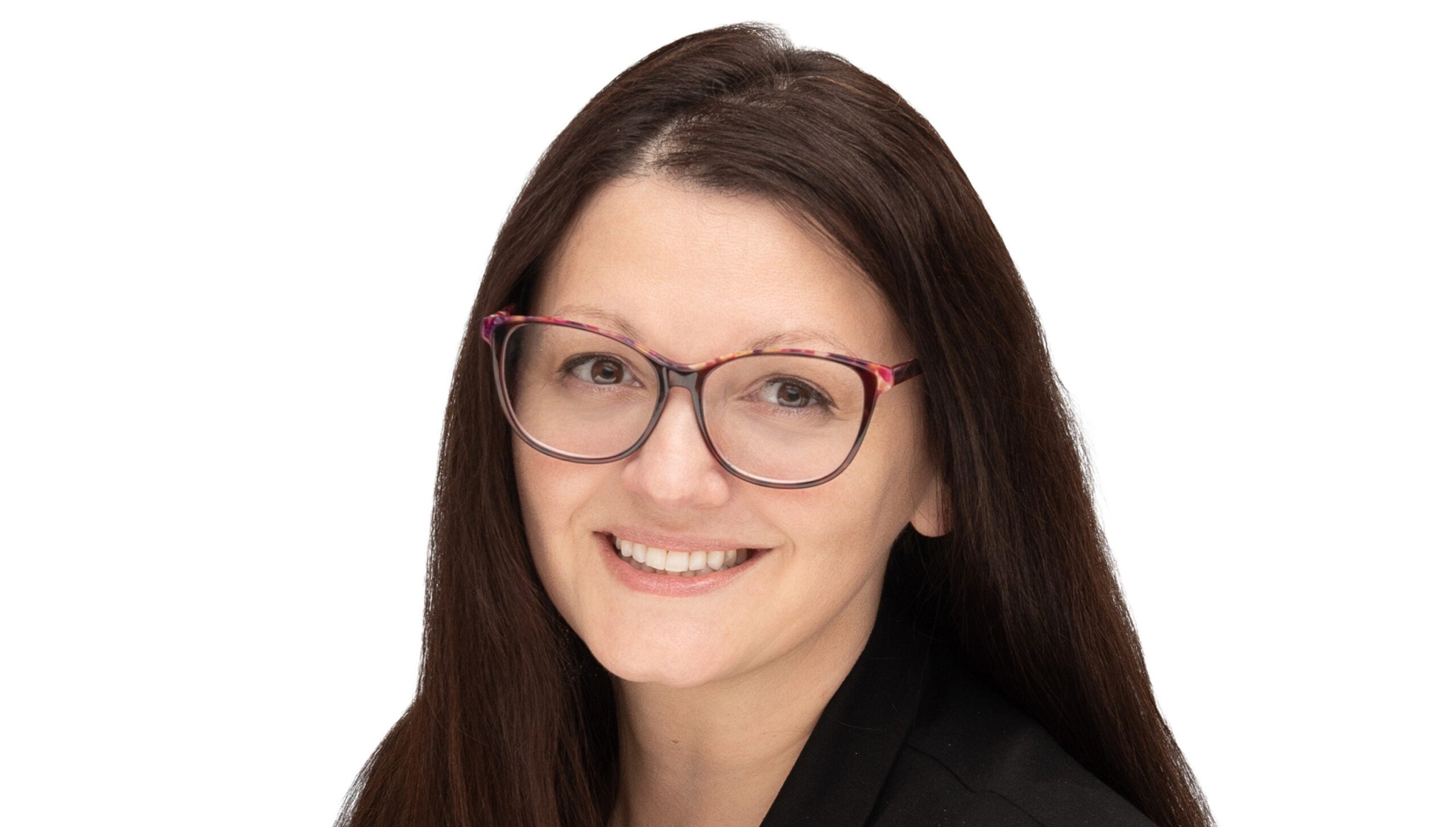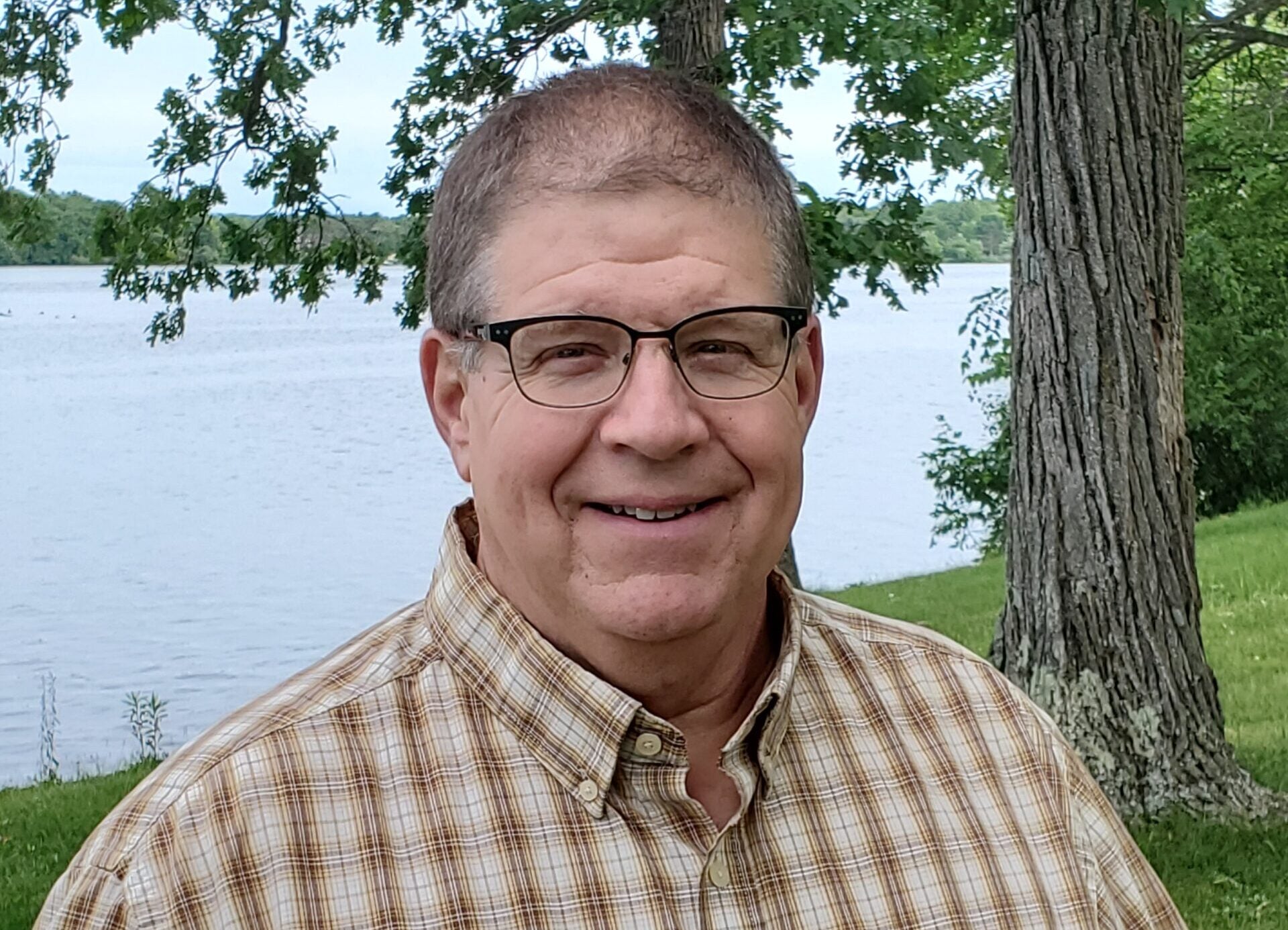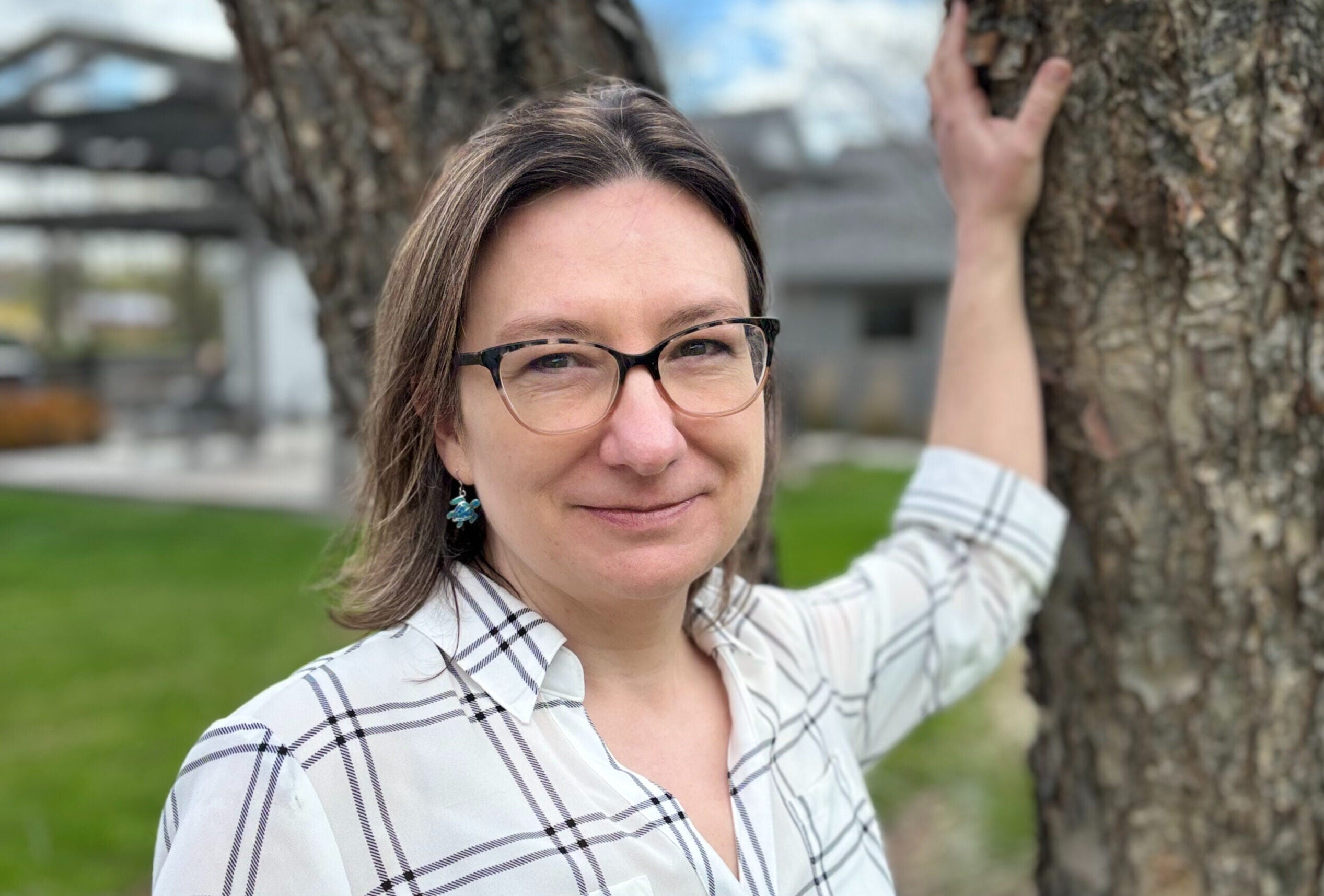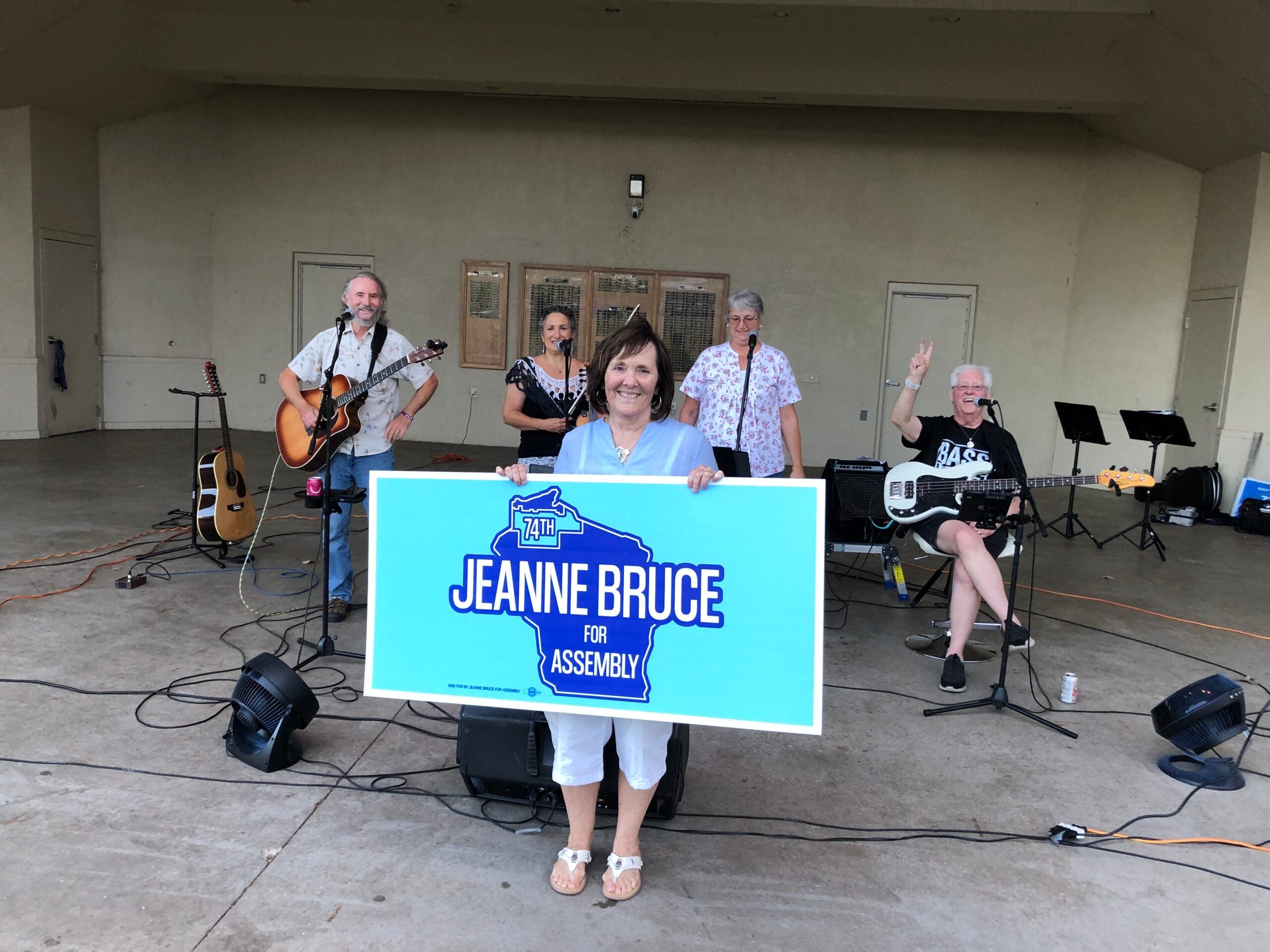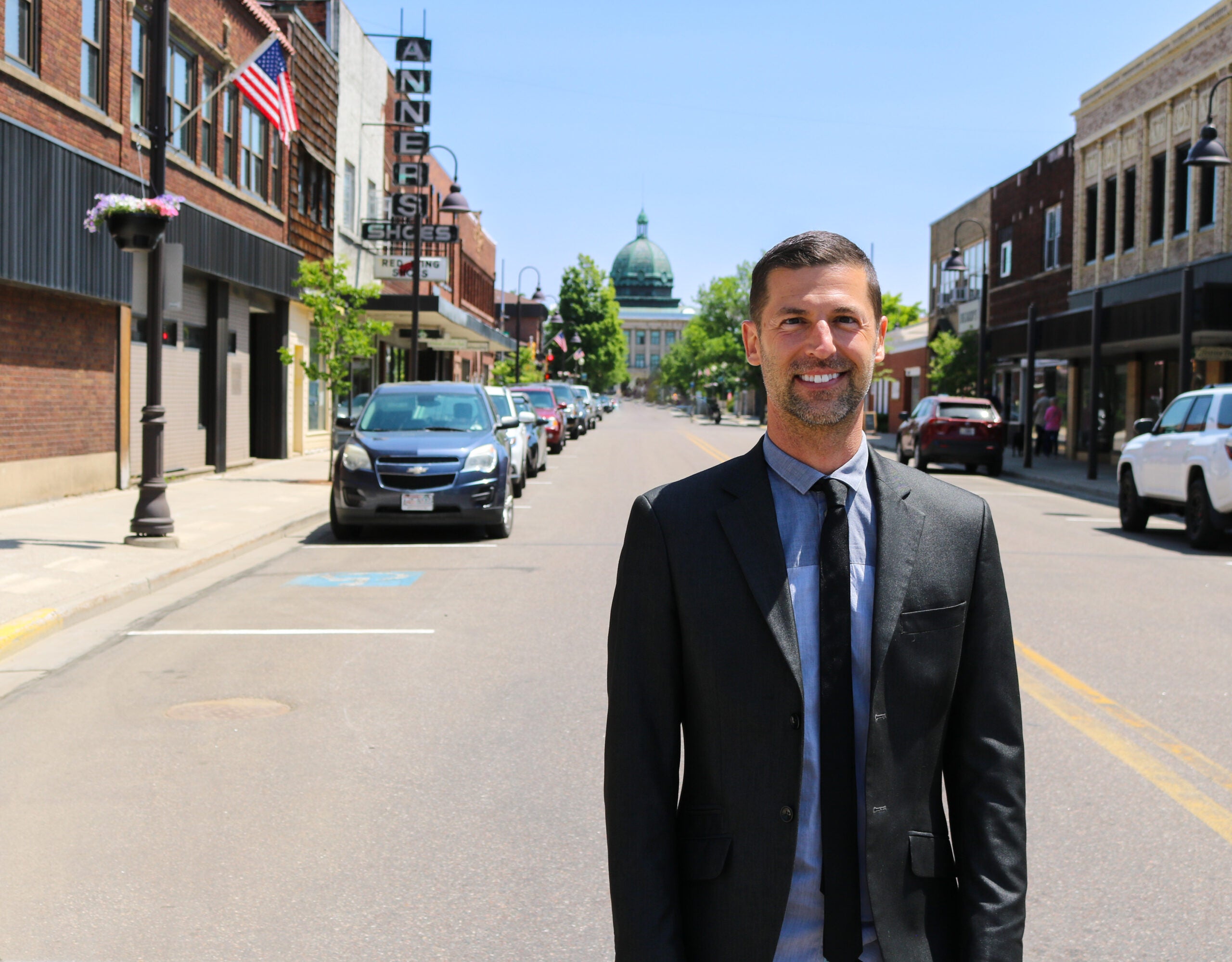As one of two candidates in the Democratic primary race, Elsa Duranceau is hoping to be the one to take on incumbent U.S. Rep. Tom Tiffany to represent the 7th Congressional District that covers northern and central Wisconsin.
Wisconsin’s 7th Congressional District was a longtime Democratic stronghold until the retirement of U.S. Rep. Dave Obey in 2011.
The district has been in the Republican column since, first by Obey’s successor, Sean Duffy, and since 2020 by Tom Tiffany, who is seeking reelection in November with no Republican primary challenger on Aug. 13.
Stay informed on the latest news
Sign up for WPR’s email newsletter.
Duranceau will face Kyle Kilbourn of Woodboro during the primary election on Aug. 13.
Duranceau was born and raised in Merrill, Wisconsin, where she graduated Merrill High School and still lives. She served in the U.S. Air Force National Guard from 2011 to 2018 and earned a bachelor’s degree from the University of Wisconsin in Madison in 2016 and also attended other UW campuses.
She’s executive director of the Lincoln County Economic Development Corporation in Merrill.
Duranceau spoke with WPR’s Robin Washington on “Morning Edition” about her candidacy. Washington also spoke with her opponent, Kyle Kilbourn of Woodboro.
This transcript has been edited for brevity and clarity.
Robin Washington: What is your top priority in Congress for representing the 7th district?
Elsa Duranceau: My top priority is to codify our right to privacy, to implement federal regulations that that have humans at the center of the policies.
Right now, there are no federal regulations for what private companies like Google, Meta or Microsoft can do with our information in the development of their AI models.
I truly believe that we need to have regulations like yesterday.
RW: It’s generally understood on both sides of the political aisle that federal immigration reform is necessary. What one reform is most needed in the current immigration system?
ED: Staffing. Staffing of the federal agencies that do the intake for the people seeking asylum. The crisis in my mind is not that there are so many people who are seeking to come into the United States, but it is the way in which we have failed to fix the processes which are implemented when they get here.
We need to have a more streamlined process and a more family-centered process. A lot of the people that are coming here already have families, and since everything is so backed up, connecting these people with their families while they’re going through the processes is nearly non-existent. And then we hear the horror of children being ripped from their parents. And you know the news that we hear of the conditions on the border.
RW: The proposed billion dollar Nemadji Trail Energy Center natural gas plant for Superior has divided northern Wisconsin, including traditional members of the Democratic Party. You have labor versus environmentalists. Are you in favor of the plant or against it?
ED: I am against it. We don’t need it. We are operating arguably OK without it. Yes, prices are a little bit higher, but when it comes to the environmental damage, the cost is just too high.
It’s not just about us Americans or the people of Wisconsin, but it’s going to cross over onto Indigenous lands. And they have their sovereign right to say no. I am in full support of that.
RW: In light of the U.S. Supreme Court’s reversal of Roe v. Wade, do you favor a federal law to either outlaw or protect abortion access?
ED: I’m in favor of a federal law that would protect abortion access, but not just the access to abortion. This goes into my main platform of the right to privacy, because what was argued in Roe v. Wade was that we all have the right to privacy that is protected in the due process clause of the 14th amendment.
The overturning of Roe v. Wade has jeopardized that privacy right that was established during that argument. That leaves the doors open to dismantling what we have and what we’ve been so blessed to have as the doctor-patient privacy privilege. Women are now being tracked in states like Texas where people can be prosecuted for going through different townships or cities.
That’s terrifying. And that all goes back to our rights to privacy. I am for reestablishing or even codifying our rights.
RW: What separates you from your opponent?
ED: I have a list. So first and foremost, I’m from Wisconsin. I’m the fifth generation Duranceau who’s born and raised in Merrill, Wisconsin, which is part of the 7th Congressional District.
I’m an Air Force veteran. I have spent eight years in the military and I have a very unique understanding of not only what it is to be a military member, but the intricate geopolitics of the world.
I have extensive experience working with public policy. In the grant programs that are funded by Congress, I see the red tape that stops rural Wisconsin from receiving the funding that is actually designated for them. And ultimately that’s what I would be bringing to Congress — essentially small things could be changed to make huge differences.
RW: This year’s presidential race is perhaps the most volatile ever, or at least since 1860. If your party’s candidate doesn’t win, how will you work with a second Trump administration?
ED: I think about this a lot and it’s however we can. Organizing from the bottom up is really how we deal with a potential Trump presidency. Congress makes these decisions. I know that Project 2025 lays out how President Trump can use his executive order to overrule, but I’m hopeful that we would be able to just hold the fort during the storm.
RW: What’s your closing statement?
ED: As an economic development director and workforce development grant writer, I became immersed into the child care industry. I did a deep dive on the issues within that industry. So I launched a new nonprofit. It’s called the Childcare Coalition of Wisconsin. And it is meant to bring an additional revenue stream into childcare providers.
When it was time to vote on the funding for the Infrastructure Bill, the current representative voted against it and then boasted how he doesn’t believe that families should be getting free childcare when that funding wasn’t going to families at all. It would have gone into the industry, the subsidizing industry.
That was ultimately what made me run for Congress — that the current representative doesn’t understand the issues, really understand them. So I would go there and advocate for subsidizing the child care industry.
